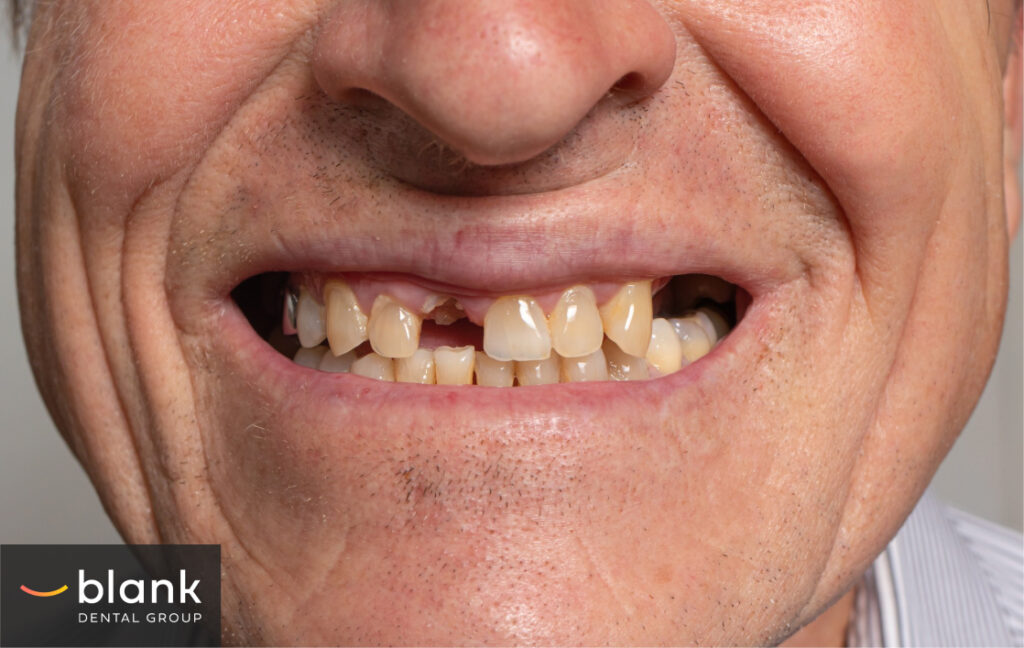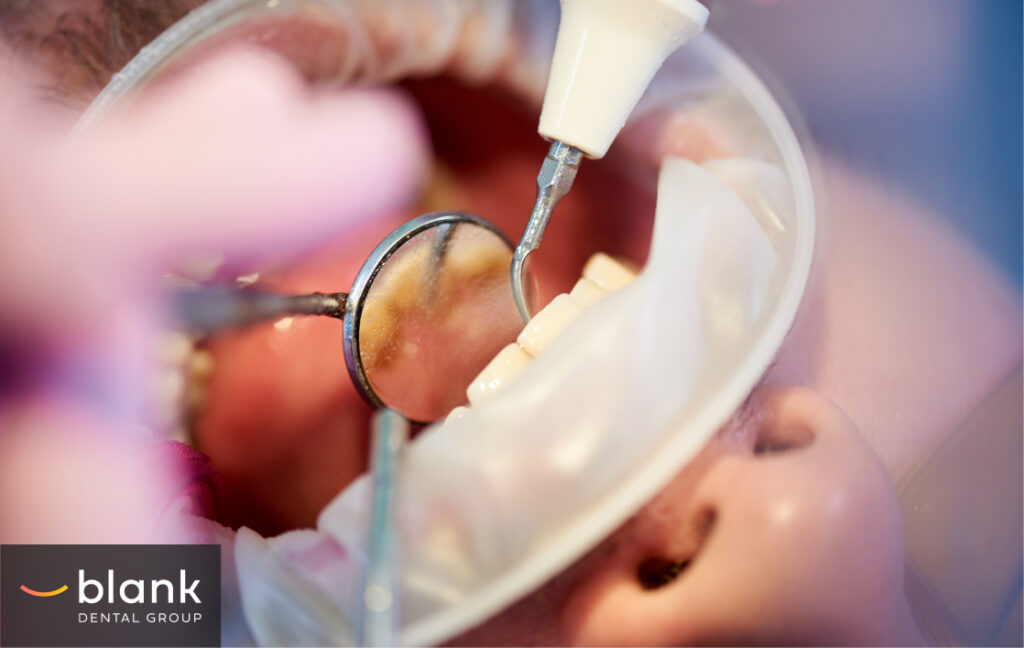Speaking clearly is something many people take for granted—until missing teeth make it difficult. Gaps in your smile can affect pronunciation, leading to slurred words, lisps, or even a loss of confidence in conversations.
If you’ve been struggling with speech issues due to missing teeth or unstable dentures, you may be wondering if dental implants can improve your speech.
Spoiler: They can.

How Missing Teeth Affect Speech
Speaking clearly depends on more than just the tongue and vocal cords—your teeth play a major role in forming sounds. When teeth are missing, it can disrupt pronunciation, making everyday conversations frustrating or even embarrassing.
Your front teeth are especially important for shaping sounds like “s,” “f,” “v,” and “th.” Without them, air escapes differently, leading to speech that sounds slurred or unclear.
For example, the word “three” might come out as “free,” or “fish” might sound more like “bish.” Even small gaps can make it harder to form words the way you intend.
Many people don’t realize how much they rely on their teeth for clear speech until they lose one or more. Sure, your teeth’ aesthetics are essential—but teeth provide the structure that helps the tongue hit the right spots to produce crisp, distinct sounds.

Effects of Loose Dentures and Gaps
Gaps from missing teeth can make speaking awkward, but poorly fitted dentures can cause just as many issues. Dentures that slip while talking often lead to slurring, whistling sounds, or a slight lisp. The constant worry of dentures moving mid-sentence can also make people hesitant to speak up, affecting their confidence in social and professional settings.
Many denture wearers find themselves adjusting their speech patterns to compensate for instability, sometimes avoiding certain words altogether. This can lead to unnatural speech or discomfort in conversations. Imagine trying to introduce yourself in a meeting and feeling your dentures shift—it’s distracting and frustrating.
For people missing teeth or struggling with ill-fitting dentures, these speech difficulties aren’t just minor inconveniences. They can impact daily interactions, making simple conversations feel stressful. Fortunately, modern dental solutions like implants offer a way to regain both speech clarity and confidence.

How Dental Implants Help Improve Speech
Dental implants do more than just restore a full smile—they help correct speech issues caused by missing teeth or unstable dentures. By providing a stable foundation for the tongue and lips to form sounds correctly, implants allow for clearer pronunciation and more natural speech patterns.
Restoring Proper Tongue Placement
Your tongue relies on teeth for support when shaping certain sounds. Without them, it may shift too far forward or struggle to find a natural resting position, leading to unclear or muffled speech. Dental implants restore that missing structure, allowing the tongue to move naturally and form words correctly.
Many patients notice an improvement in sounds like “s,” “f,” “v,” and “th” once their implants are fully integrated. For example, someone who struggled to say “soft” without slurring might find the word much easier to pronounce once their tongue can make proper contact with their new teeth.
Eliminating Denture-Related Speech Issues
Loose dentures often move while speaking, causing slurring, clicking, or even an occasional lisp. Some people find themselves subconsciously adjusting how they talk to keep their dentures in place, which can make speech feel unnatural.
Because dental implants are secured directly into the jawbone, they remove these concerns entirely. There’s no risk of shifting, slipping, or creating distracting noises mid-conversation. This stability allows for better articulation, clearer speech, and more confidence when speaking—especially in social or professional settings.
Enhancing Oral Muscle Memory and Adaptation
At first, speaking with dental implants may feel slightly different as the tongue and facial muscles adjust to the new structure. However, this adjustment period is short-lived. Over time, the mouth naturally adapts, and speech patterns become smoother.
Patients often describe the change as a return to effortless speaking—no more overcompensating for gaps or worrying about dentures moving at the wrong moment. Instead, they regain the ability to speak clearly and confidently without second-guessing their words.
For those who have struggled with speech issues due to missing teeth or unstable dental appliances, implants provide not just a solution but a lasting improvement in how they sound and feel when they speak.

Adjusting to Speech Changes After Implants
Getting dental implants is a major step toward restoring both function and confidence, but like any change to the mouth, there’s an adjustment period. While speech may feel slightly different at first, most patients quickly adapt and experience noticeable improvements in clarity and pronunciation.
In the first few weeks after getting dental implants, the tongue and facial muscles need time to adjust to the new structure. Some patients may notice slight differences in how certain words feel when spoken, especially if they’ve been without teeth or using dentures for a long time. This is completely normal—just like getting used to a new retainer or dental filling.
To speed up the adaptation process, simple speech exercises can help:
- Reading aloud: Whether it’s a book, a newspaper, or even song lyrics, reading out loud helps the tongue adjust to the implants naturally.
- Repeating challenging words: Practicing words with “s,” “th,” or “v” sounds can help regain fluency.
- Speaking slowly and clearly: Taking a mindful approach to pronunciation in the early days makes the transition easier.
Most patients find that within a few weeks, speech starts to feel natural again, with improvements in clarity and ease.
Long-Term Benefits: Speech Confidence and Clarity
As the mouth adapts, speaking becomes effortless. Words flow more naturally, pronunciation improves, and any initial awkwardness fades. Unlike dentures, which can shift or create self-conscious moments, implants feel secure—giving patients the confidence to speak freely in any situation.
Many patients notice a boost in speech confidence, whether at work, in social gatherings, or on phone calls. They no longer worry about slurring words or adjusting their speech patterns to accommodate gaps or shifting dentures.
With a natural-feeling dental structure, articulation improves, and conversations become stress-free. Over time, implants don’t just restore speech—they help people speak with clarity, confidence, and ease every single day.
Dental Implants Can Improve Your Speech, But They’re Not Right for Everybody
For many people, missing teeth makes speaking clearly a daily struggle. Certain words come out slurred, lisps develop, and confidence takes a hit.
Dental implants can change that by filling in gaps, giving the tongue a stable surface to press against, and making speech feel natural again. Unlike dentures, which can slip or cause clicking sounds, implants stay in place, allowing for smooth and effortless conversations.
But implants aren’t the right fit for everyone. One of the biggest factors in determining eligibility is jawbone density. Since implants are secured directly into the jaw, there needs to be enough healthy bone to support them. If too much bone has been lost due to missing teeth or gum disease, an implant may not be possible without a bone graft.
That’s why a consultation with your dentist is so important. They can assess the health of the jaw and determine whether implants are a good option. For those who are candidates, the benefits go beyond just improving speech—implants provide a long-term solution for comfort, confidence, and a more natural way of speaking.
Speak Clearly, Smile Confidently
Missing teeth can make everyday conversations frustrating, but dental implants offer a way to restore both speech clarity and confidence. By providing a stable foundation, they help shape words naturally, eliminating the struggles that come with gaps or slipping dentures.
While not everyone is a candidate, those who qualify can experience lasting improvements in pronunciation and articulation. If speech issues have been holding you back, a consultation with a dental implant specialist could be the first step toward speaking clearly and smiling confidently again.







